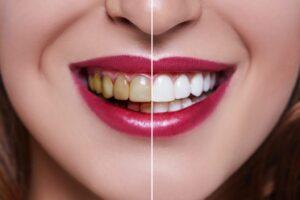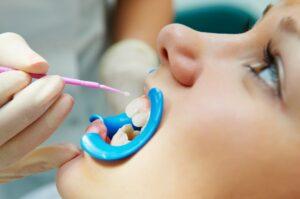A patient asked me a good question today that many others have asked at the dentist: how long does it take for cavities to form?
Before I answer, first consider a quick analogy: Imagine two evenly matched teams of kids having a tug-o-war. As long as the teams are balanced, nobody has an advantage and the rope doesn’t move much at all. If you take a kid away from one team, or perhaps add an unusually strong kid to the other team, the balance is thrown off and the stronger team will win the struggle. Our mouths are not unlike this analogy. Cavities are essentially the result that happens when Team Decay wins the “tug-o-war” against Team Remineralization. On Team Decay we have two main heavy-hitters: Sugar and Bacteria. Team Remineralization trots out Saliva, Enamel, and Daily Hygiene as its all-stars.

To understand what I mean by decay and remineralization, you need to know something about the cavity-forming process. Tooth enamel, the outer covering or “armor” of a tooth, is mostly made of hard inorganic materials (roughly 98%). There is a small organic component to enamel, however, that makes teeth slightly susceptible to dissolving in the presence of acid. It is this chink in the armor that gives a tooth the ability to decay. Specific bacteria in the mouth produce acid when they have sugar to consume, so when food is present in the mouth, bacteria are producing acid and enamel is being dissolved. This sounds kind of scary, but it is important to understand that this is not a constantly occurring process—or at least it shouldn’t be. When teeth are properly brushed and flossed, mouth bacteria have nothing to eat and no acid is produced. In fact, during these non-acidic periods, components in the saliva actually make the mouth slightly alkaline and teeth are able to take in calcium and phosphate and repair themselves, or in other words, remineralize. Remineralization can be understood as a process that is the exact opposite of dissolving.
The conditions that promote decay and remineralization are constantly changing, so in a typical day our mouths might cycle through conditions that promote decay and remeralization dozens of times. The individual episodes are not so important, but the cumulative effect added up over a period of time is extremely important. Going back to the tug-o-war analogy, hopefully Team Remineralization balances out or even wins against Team Decay in the long run. If this is the case, our mouths will remain cavity free for a long period of time as long as conditions do not change drastically. But what happens when conditions do change? Daily Hygiene tends to be an oft-injured player for Team Remineralization. If he misses significant playing time, Team Decay will eventually overcome and win the struggle. If Daily Hygiene is completely absent, Team Decay will become a championship dynasty. Sometimes Team Decay will bring in free agents such as Dry Mouth, Grinding, Missing the 6-Month Checkup, Ignoring Needed Dental Work, or even the unstoppable juggernaut, Daily 128 Oz. Mountain Dew. Luckily, the game is rigged–we control almost everything about it. It is largely our decision who plays and who sits out in this tug-o-war match. Although some conditions are definitely beyond our control, such as needed medications that cause dry mouth, but for the most part, we can make up for any issues by taking good care of our mouths through consistent and thorough daily hygiene, regular exams and cleanings, and taking care of needed dental work.
So to answer the original question, how long it takes for cavities to form really depends on a variety of factors. If Team Remineralization is healthy and playing well, it might take years for a cavity to form. If Team Decay has the momentum however, a cavity might form in weeks to months, depending on how severely tilted the balance of the tug-o-war teams is.
-Nicolas K. Young, DMD








